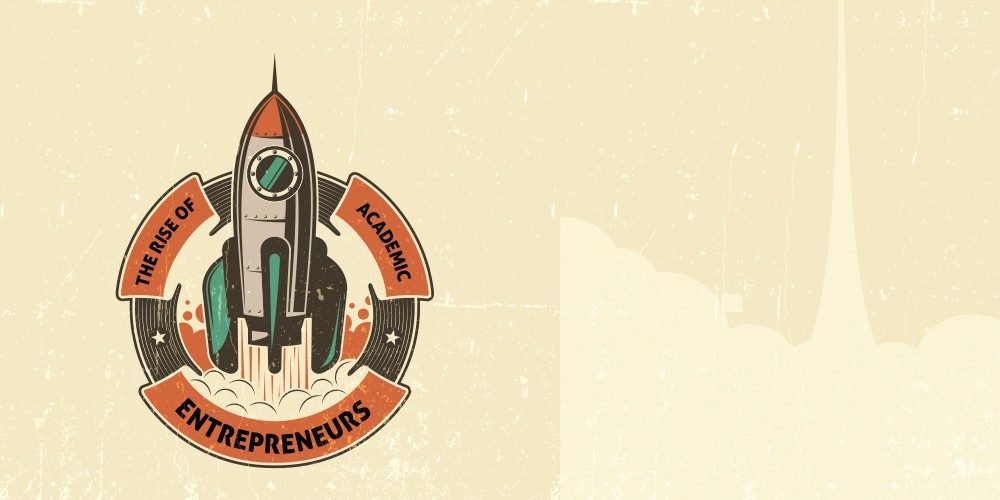English for medicine: Bridging worlds
You come to Malta to attend Medical School, and you end up in an English class. Nicola Kirkpatrick talks to Dr Isabel Stabile, Omar N’Shea, and Edward Wilkinson about the often unappreciated value of the University of Malta’s Medical Foundation Programme and its impact on international medical students’ lives.
A sea of blank faces stared him down. Omar N’Shea had asked his students a question, but no reply came. None of them wanted to be there. The University of Malta’s Medical Foundation Programme (MFP) aims to equip high school graduates with less than 13 years of formal education with the skills they need to enter Medical or Dentistry school. But its focus on academic English is what receives the most ire. N’Shea, one of the programme coordinators, understands. ‘They don’t see the value initially. They think to themselves: ‘I didn’t travel thousands of miles away to sit in an English class. No, I want to study medicine.’ The frustration is understandable,’ he nods.
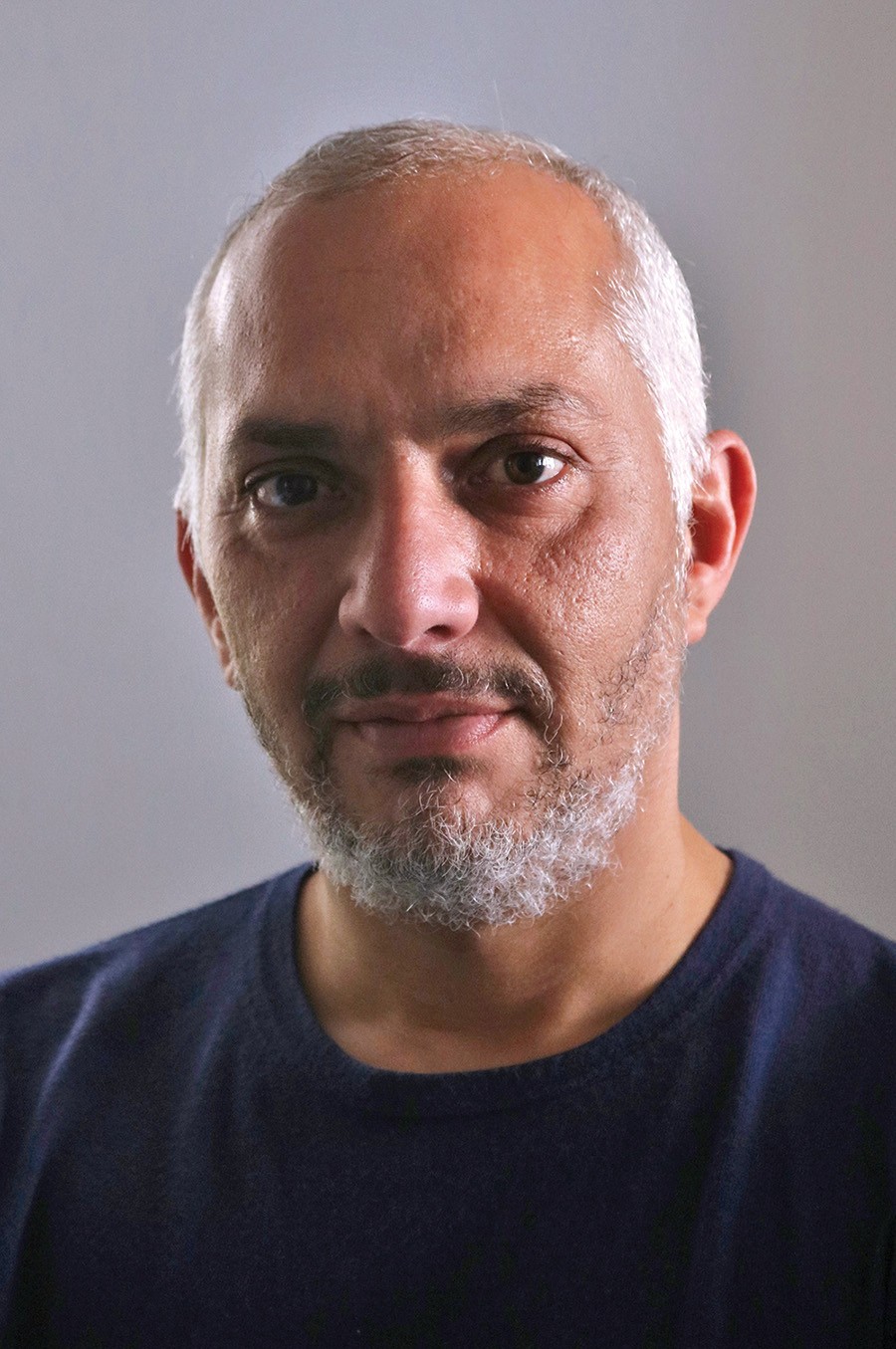
But when so many international students were struggling with the medical course due to language and communication difficulties, something clearly had to be done.
Looking back at the challenges she was facing when the Medical School opened its doors to international students, Director of Studies Professor Isabel Stabile notes the discrepancy in language skills. What was expected was quite distinct from the reality of the situation. ‘What is interesting about our student body is that their spoken level of English is really high,’ says N’Shea, ‘but their written level of English needs work to keep up with the demands of an academic course.’
English Programme Coordinator and tutor Edward Wilkinson agrees, highlighting that ‘resources were lacking. Teaching exercises and materials were sourced online and everyone did the best they could. But a gap quickly emerged as far as Medical English was concerned.’ Stabile further clarifies, ‘Most books available were aimed at teaching doctors and nurses bedside manner and care for patients, but there was little to none out there that focused on academic medical English.’
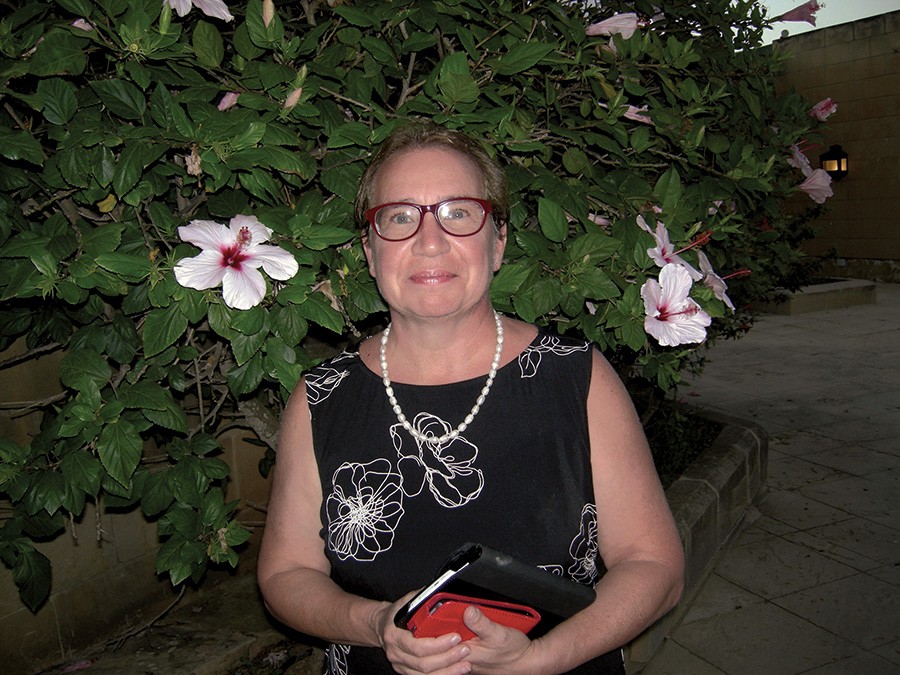
With this philosophy in mind, Stabile, N’Shea, and Wilkinson joined forces to develop a series of books called Academic Medical English for Pathway/Foundation Programmes. These books provided a framework for students to deal with the language in which scientific subjects are taught. The material improves their academic literacy in ways important to medical students, equipping them with skills such as reviewing research papers, writing reflective essays, and answering essay questions.
The book was ‘born out of the needs of these students and the medical program,’ says N’Shea. ‘The concept is to present to the students the core skills required by the medicine and surgery degrees, so that students become aware of the differences between using English as a lingua franca and using English within the framework of academic literacy.’ To enable this, the team included topics to reflect those covered in the science classes that students attend throughout the course. ‘So if they’re doing pulmonary topics in science classes,’ N’Shea says, ‘then they’re discussing them in English classes too. We used the science as a framework for our English lessons, and that was essential. Rather than teaching two disciplines with no dialogue, we created a bridge.’
This approach saw immediate shifts in perception. Dr Hussein Alibrahim, now a house officer in Kuwait, says his primary and secondary education was all in Arabic, and the foundation course, where English and science stood side by side, ‘was an advantage and a necessity. Skimming carefully through an article, identifying keywords, summarising, criticising, asking questions, and looking for the right answers are all skills that I learned for the first time in the foundation course and are skills I still use today,’ he added.
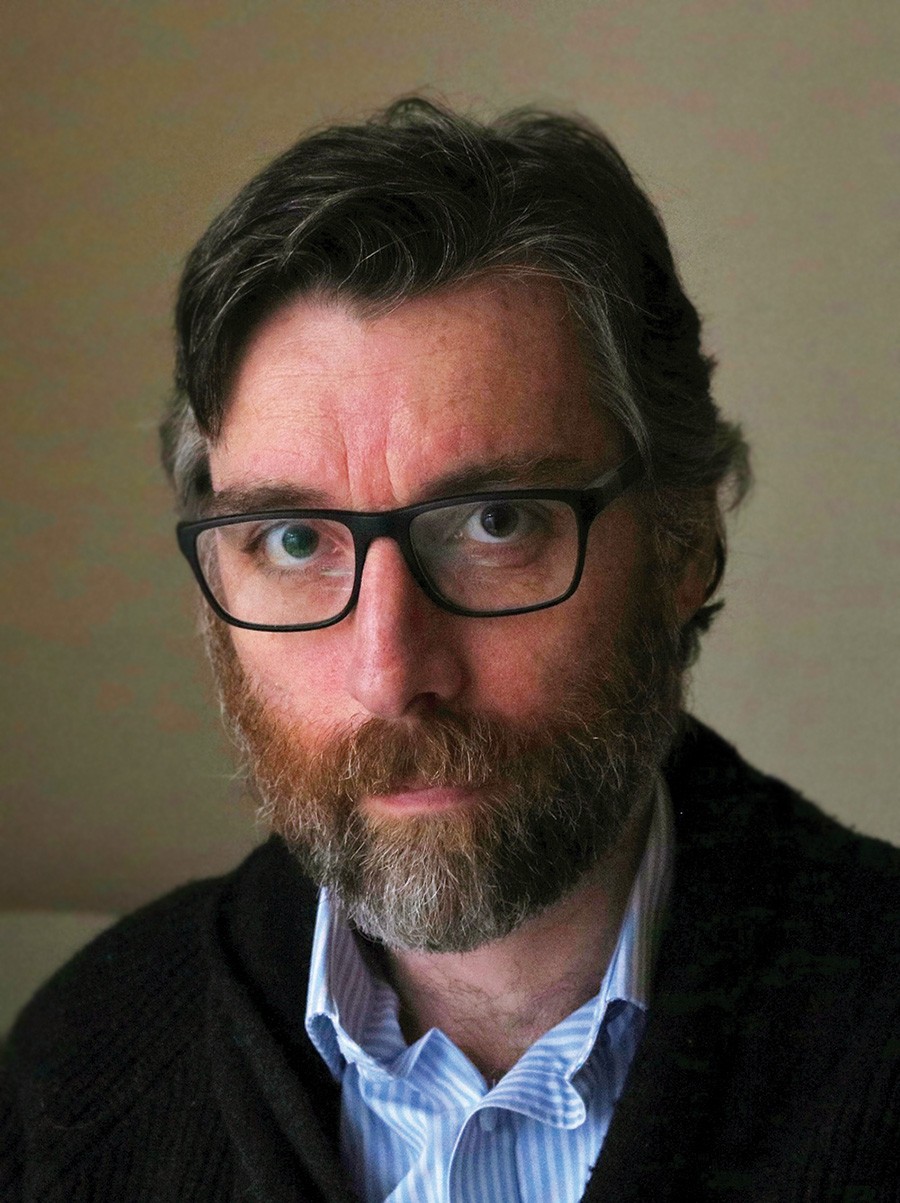
But the programme was not only useful for medical school. Alibrahim noted how it changed his day-to-day life as well. It taught him important lessons on punctuality and work ethic. ‘If you don’t learn [these things in foundation school] then maybe you’re in the wrong place,’ he notes.
With time, the team refined the course. After looking into the discrepancy between spoken and written levels of English, N’Shea and Wilkinson determined that the most probable reason behind it was a lack of reading by the students. Due to this, reading is now a core element of the course and is based on science topics to keep students’ interest piqued.
Now that the coursework has been implemented, positive results can already be seen. Students are so ready and raring to go that ‘sometimes they even want to take over the sessions,’ says N’Shea. ‘A student came up to me in class one time and asked to explain a concept to the others. It was such a dramatic shift.’ This has made it a joy to be in class, he adds, saying that ‘it became an active classroom. Students are totally immersed now.’ He feels that, through this course, the students are empowered ‘because they feel they can bring into the classroom all the things they know from science, but explore them through language.’ This way, ‘English is presented as a skill set to enable them to better achieve their goal in the career path of choice. It makes English less of an extra subject and more of a tool,’ he adds.
N’Shea, Wilkinson, and Stabile all agree that they will continue to perfect the programme. Currently in the works is a coursebook dedicated to developing listening skills. It will concentrate on areas such as note writing and identifying and differentiating words even when people speak with different accents. However, before the ‘listening book’ (as they fondly call it) is released, we will see the ‘reading book’, which will provide scientific passages for the students to read and be assessed on. All editions of this book will have the added bonus of a teacher’s book, meaning that the coursework can be taught by any teacher around the world, even if their knowledge of science is lacking.
With students communicating more, isolation is less of an issue and this is immensely beneficial. ‘We have to remember the dramatic shift that these students are going through,’ Stabile says. ‘They’re moving country, dealing with culture shock, all while fending for themselves for the first time in their lives, an adjustment local students do not need to make.’ This, along with the pressure that comes with a course you only get one chance to pass, is significant.
With students communicating more, isolation is less of an issue and this is immensely beneficial.
The fruit of their hard work is evident. According to research conducted by the team, between 2008 and 2015, 86% of MFP graduates progressed through Medical School. Moreover, the proportion of MFP students who repeat Year 1 of their medical degree is only 8.2% compared with 8.8% for EU (mostly British) students between 2014 and 2017. They also found that MFP students who started in 2010 and graduated medical school in 2015 achieved the same average grade over the whole five years as did local students in that cohort.
That said, all this work is not just about grades. Stabile says the team’s intentions go beyond seeing students pass exams. What they want to do is to ‘place them on a trajectory for success.’ And that is definitely a goal they are achieving, one year at a time.
Author: Nicola Kirkpatrick
Training to temper: Emotional learning for young people
Over the last decade, workaholics have been glorified as the epitome of success. Problem behaviour is increasingly framed as ‘interesting’ and ‘quirky’ by certain media. But as mental health and well-being capture public attention, Cassi Camilleri speaks to Prof. Carmel Cefai about his efforts to promote social and emotional learning for children and young people—skills for a lifetime.
Life is life, they say. Trial and error. You live and learn.
But how many times have you been frustrated with yourself because you ‘never learn’ from your mistakes?
How many times have you found yourself in a rough spot because deadlines are a dime a dozen and your to-do list is insurmountable? Your phone is ringing off the hook. All the people you have been ignoring are sending angry emails. You have not slept properly in days. All the while, you continue to dig your heels in, creating more issues with the people around you because you are so overwhelmed you cannot communicate like a decent human being. You are 40. Still think learning from experience is the only way you can go about this?
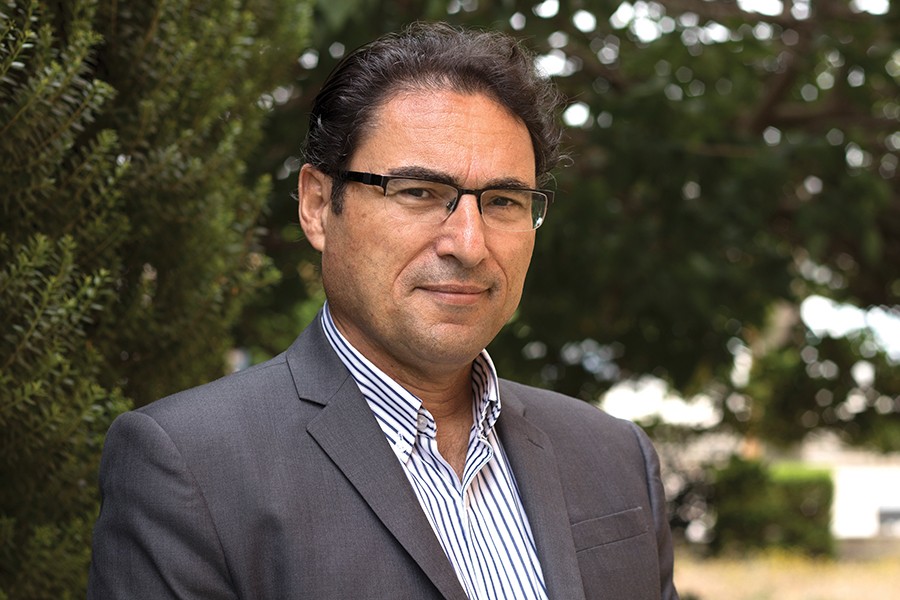
Human beings love patterns, routines. We love repeating what works. We also tend to repeat what doesn’t though, because change is hard. But solutions exist. At the University of Malta (UM), Prof. Carmel Cefai (Faculty for Social Wellbeing), is hard at work pushing for social and emotional education (SEE) to be promoted and strengthened at all levels in Malta and Gozo.
His appreciation for the importance of relationships and addressing students’ emotional needs in learning started over 40 years ago when Cefai was working as a primary school teacher. ‘Getting to know the students individually, what they like, what makes them tick, providing individual attention according to their needs, was an important part of the teaching process. When I was teaching at Qormi, on Monday mornings my students and I would talk about horse racing—which horse won which race that weekend? I learnt many of the horses’ names even if I wasn’t that interested in horse racing. But then during the week we ended up using horses as examples during class. It was a good and easy way to engage students.’
Cefai agrees that while overprotecting young people is counterproductive, students should have the skills to make informed choices, avoid taking too many unsubstantiated risks, and make some but not too many mistakes. ‘We do not need to experience highly stressful, painful, or traumatic experiences to learn or grow. The process of growth does not require that we become dependent on alcohol or drugs, engage in criminal behaviour, contemplate suicide or struggle with depression.’ Playing devil’s advocate, I say that such experiences provide their own brand of wisdom, but Cefai quickly retorts that whatever the takeaway may be, even if it is a positive: ‘the price paid is much too high.’
Where do we begin?
The majority of western culture, including Maltese, has a very particular problem when it comes to education—the whole process is vehemently geared towards academic achievement. There is a pervasive obsession with tests and grades. So the first thing we need to do, states Cefai, is move away from that. ‘Education is not just preparation for work. It’s also about the integration of cognitive, social, and emotional processes that make us human. If we provide an education based only on academic achievement, we will be shortchanging our children and depriving them from a good, quality preparation for adulthood,’ he says—the whole aim of education.
Rather than what kind of jobs people do, or what successful businesses need, as educators we need to ask: what kind of life would this child or young person be happy living?
SEE is the process by which an individual develops social and emotional competence through curricular, relational, and contextual approaches, skills that can be used for personal, social, and academic development. The concept already has a proven track record, Cefai notes. Where successfully implemented, SEE ‘has already brought about a paradigm shift in education, […] transforming it into a more meaningful, relevant, and humane process.’
Malta has come a long way already over the last few decades. Cefai remembers when, as a primary school teacher, he had tried to support a young school child with mental health difficulties who was not only ridiculed and bullied by the other children, but also shunned by adults because of his ‘odd’ behaviour. ‘The boy clearly needed help from specialised professionals,’ notes Cefai. ‘But he also needed to attend school and learn with people his age. The alternative was to stay at home, which he inevitably did because he was often absent.’ Thankfully, things worked out in the end. ‘With the help of the head of school and some professionals, we managed to make some inroads and his behaviour started to improve. But I remember back then struggling with lack of professionals, fragmented services, and rampant stigmatisation.’
The situation has continued to improve since then. Cefai promptly lists the good practices which are already in place. ‘We have Personal, Social, and Careers Education which has been in schools for years now. There have been various national initiatives promoting students’ well-being, all working to prevent school bullying and violence, early school leaving and absenteeism, as well as to promote inclusion in all shapes and forms. Many colleges and schools have also been engaged in various initiatives to promote social and emotional learning, such as Circle Time, Restorative Justice and Resilience building.’
Not only that, but Cefai himself has worked with colleagues at the UM to found the Centre for Resilience and Socio-Emotional Health at the University, as well as with European counterparts to set up the European Network for Social and Emotional Competence. ‘Our centre has been quite active over the years in providing training for school teachers in these areas, particularly in resilience development. We are also presently working with the Ministry on SEE training of practising staff in the early years,’ he adds. But there is still much more to be done…
Priorities
 Children’s development can be badly affected if their social and emotional well-being is not adequately addressed, says Cefai. This gap in emotional learning allows for educational systems to be driven primarily by market economy needs. Rather than what kind of jobs people do, or what successful businesses need, as educators we need to ask: what kind of life would this child or young person be happy living? The market-driven approach is focused on performance, individualism and competition, with little time and space for collaboration, sharing, compassion, and solidarity. Sadly, this situation is seen all too often.
Children’s development can be badly affected if their social and emotional well-being is not adequately addressed, says Cefai. This gap in emotional learning allows for educational systems to be driven primarily by market economy needs. Rather than what kind of jobs people do, or what successful businesses need, as educators we need to ask: what kind of life would this child or young person be happy living? The market-driven approach is focused on performance, individualism and competition, with little time and space for collaboration, sharing, compassion, and solidarity. Sadly, this situation is seen all too often.
So, how do we fix this? How do we make SEE a priority? Cefai immediately runs off a list of to-do’s. ‘We need to give social and emotional education more space and time in our schools. We need to invest more in teachers, giving them better training, and supporting them in taking care of their own health and well-being,’ Cefai emphasises. ‘Only when teachers take care of themselves and their well-being can they really create healthy, caring classroom environments where people build healthy relationships. It’s only then that they can respond effectively to students’ needs and become good role models.’ We also need to put more effort into the early years, when the building blocks of mental health and well-being are laid. We need to encourage schools to take a more holistic approach, to give students a stronger voice, to encourage parents to take a more active, participative role in their children’s education.
Of course this is not all achieved at the snap of our fingers. Resistance is to be expected, nods Cefai. ‘In order for SEE to work, there needs to be good quality planning, implementation, monitoring, and evaluation. We know of state-of-the-art programmes which failed to make an impact as they were not implemented well, such as the Social and Emotional Aspects of Learning (SEAL) in the UK which was eventually withdrawn because of lack of effect.’ Looking into reports about SEAL, ‘a superficial approach to implementation (‘box ticking’)’ was one of the main reasons the program failed.
Cefai also says that we need to be careful at all stages to avoid hijacking agendas. ‘Social and emotional learning should always be centred on children and young people’s needs. Their own and others’ well-being. We need to ensure that SEE retains focus on the people it is meant to help, recognising individual differences, while avoiding labelling and pathologising children and young people. SEE is about mental health promotion and well-being and prevention, rather than on deficiencies, deficits, and illness. Another issue is not to let SEE be taken over by the neo-liberal ’business model’ to fuel the market and global economy, where social and emotional skills are simply used to leverage productivity.’ Despite all this, the case for SEE remains tremendously strong.
There are no losers here
 A success story in SEE implementation is a success story for everyone. Reams of evidence through studies can be found touting SEE’s praises. The approach enhances prosocial behaviour and mental health and well-being. It enhances academic achievement and prevents problem behaviours such as delinquency, anxiety, and depression. Such social issues cost taxpayers money to handle, mitigate, and fix. So much so, that the costs involved in setting up SEE are guaranteed to be not only returned, but exceeded. Some studies report that for every €1 invested, €11 will be returned to the economy in various shapes and forms.
A success story in SEE implementation is a success story for everyone. Reams of evidence through studies can be found touting SEE’s praises. The approach enhances prosocial behaviour and mental health and well-being. It enhances academic achievement and prevents problem behaviours such as delinquency, anxiety, and depression. Such social issues cost taxpayers money to handle, mitigate, and fix. So much so, that the costs involved in setting up SEE are guaranteed to be not only returned, but exceeded. Some studies report that for every €1 invested, €11 will be returned to the economy in various shapes and forms.
‘I have been involved in various SEE and resilience projects in schools both in Malta and abroad,’ says Cefai. ‘I have always been very encouraged by the interest, enthusiasm, and collaboration of students, school staff, and parents. Staff and parents have been resistant at times, thinking it will take precious time from academic learning, until they realise that our approach actually enhances it. They may think that SEE is about mental illness, until they they realise that is about health and well-being and learning all rolled into one. Children really like to learn in this way, finding it enjoyable, meaningful, and useful, while teachers reap the satisfaction of seeing their students excel, improving their own lives through their contribution.’
So much of our lives are determined by our beliefs and perceptions. Learning how to process events and information in an effective way can make all the difference in how sequences of events unravel. That violent knee-jerk reaction, that long-standing bitter belief about ‘how the world works’; in difficult times, these thoughts can lead anyone down a long, dark path that’s very difficult to come back from. Social and emotional education that teaches young ones to listen to themselves and respect their feelings, as well as those of others, could begin to change that.
In a world where we are bombarded by stimuli every waking moment, it is not hard to imagine that we need to take the time to look inward and listen—our children depend on it.
Prof. Cefai has recently published three major publications in this area: An EU commissioned report on the integration of social and emotional education in the curriculum, an edited book on the promotion of mental health in schools and another edited book on the child and adolescent well-being and prevention of school violence.
Read more:
Cefai, Carmel, and Paul Cooper. Mental Health Promotion in Schools: Cross-Cultural Narratives and Perspectives. Sense Publishers, 2017.
Cefai, C. et al (2018) Strengthening Social and Emotional Education across the Curriculum in the EU.Review of the international evidence. Luxembourg: Office of the European Commission.
Author: Cassi Camilleri
Mind the Gap
The world is changing. Technologies are developing rapidly as research feeds the accelerating progress of civilisation. As a result, the job market is reacting and evolving. The question is: Are people adapting fast enough to keep up? Words by Giulia Buhagiar and Cassi Camilleri.
Mur studja ha tilħaq.’ (Study for a successful future.)
From an early age, most Maltese students are conditioned to think this way. You need a ‘proper education’ to land yourself a ‘good job’. But students graduate, and with freshly printed degrees in hand, they head into the job market only to be disappointed when the role they land seems unrelated to their degree. Yet vacancies are ready for the taking; there are many unfilled jobs in the STEM fields, which create 26% of all new vacancies according to recent research from the National Statistics Office.
So, if there are vacancies available, what is the problem? A skills gap.

Academic qualifications do not guarantee that graduates have the right skills for work. At a conference addressing the skills gap organised by the Malta University Holding Company (MUHC) and the Malta Business Bureau (MBB), Altaro Software co-founder and CEO David Vella confirmed this problem. In previous years, Altaro mostly employed experienced developers; however, increased demand led them to realise that there weren’t enough of these candidates out there for them.
To fill those roles, they extended the call to younger people, but Vella found that they were not fully equipped and ready to go. This was when he realised that they needed to change tactics. ‘Now we realise that we need to start hiring junior people and build up their skills.’ Investment needs to be made by both sides.’
What every relationship needs
Better communication between business and academia could improve the skills gap. However, this kind of engagement is easier to manage in some institutions and industries than others, and bringing those worlds together poses many challenges. At the same conference, MUHC CEO Joe Azzopardi noted how start-ups and small businesses often do not have the resources to organise such exchanges. The wall between them and students is a difficult one to get over. However, there is a new initiative seeking to remedy this situation.
Go&Learn is a project bridging education and industry through an online platform that effectively catalogues training seminars and company visits in a multitude of sectors, for students and educators alike. The initiative has garnered a slew of supporters. Sixty companies from all over the world are listed on the site, including some local names: Thought3D, ZAAR, and Contribute Water, to name a few. This year was Go&Learn’s third edition, and with 17 European regions from across 10 countries involved, it focused on the STEM fields. In Malta, the team behind Go&Learn, also a collaboration between MUHC and the MBB, have worked together to create two new programmes.
One was dedicated to ICT for business, leisure, and commodity. It saw students visit and learn from local companies Altaro, Scope, MightyBox, Trilith, and Flat Number. Students said that the visits helped them achieve a better understanding of the sector and its nuances. ‘For us students, the fact that we are exposed to the internal working of a business’s environment, it’s an eye-opener,’ said University of Malta (UM) student Maria Cutajar. The second was related to food, involving Elty food, Benna, Fifth Flavour, Da Vinci Pasticceria, and Contribute Water. In this case, the opportunity even attracted foreign students. Go&Learn is acting as a vital bridge between education and industry that can help to minimise the skills gap.
The skills gap exists for many reasons: prejudices towards certain industries, lack of information available on others, and much more. However, education can play an important part in fixing this problem.
Bringing STEM to life
The skills gap exists for many reasons: prejudices towards certain industries, lack of information available on others, and much more. However, education can play an important part in fixing this problem. Currently, local systems are falling short of reacting quickly and addressing new needs in industry. A lot of attention is placed on short-term goals such as exams and assignments, rather than the bigger picture and real-world tasks. This kind of attitude in science education tends to be exacerbated by the notion that its subjects are for ‘nerds’ and ‘brainiacs’. This can be a daunting prospect for young children who don’t see themselves as ‘smart enough’. It can drive lots of young talent away from STEM subjects.
 We need to bring fresh talent into STEM by showing how exciting, accessible, and relevant the field actually is. The solution, UM Rector Prof. Alfred Vella says, is to start right at the beginning: ‘We need to inspire teachers.’ This includes attracting the best teachers by providing appropriate salaries. Through education, we need to change the impressions given to children about science and what it means. ‘When I was younger, they used to tell me, why do you want to do science? Wouldn’t it be better to be a doctor? Engineers were seen more as grease monkeys,’ Vella said with a smile. Science should be engaging, inspiring, and fun. For this reason, he commends ESPLORA as being ‘the single most important feature in Malta.’ Vella believes classrooms should be an extension of the ESPLORA centre in their efforts to bring science to life. In addition to teachers inspiring future generations, parents also need to see STEM jobs as a good career for their children, and businesses need to show parents that exciting careers are available by pursuing STEM subjects. Without this, early encouragement might be fruitless.
We need to bring fresh talent into STEM by showing how exciting, accessible, and relevant the field actually is. The solution, UM Rector Prof. Alfred Vella says, is to start right at the beginning: ‘We need to inspire teachers.’ This includes attracting the best teachers by providing appropriate salaries. Through education, we need to change the impressions given to children about science and what it means. ‘When I was younger, they used to tell me, why do you want to do science? Wouldn’t it be better to be a doctor? Engineers were seen more as grease monkeys,’ Vella said with a smile. Science should be engaging, inspiring, and fun. For this reason, he commends ESPLORA as being ‘the single most important feature in Malta.’ Vella believes classrooms should be an extension of the ESPLORA centre in their efforts to bring science to life. In addition to teachers inspiring future generations, parents also need to see STEM jobs as a good career for their children, and businesses need to show parents that exciting careers are available by pursuing STEM subjects. Without this, early encouragement might be fruitless.
With more young people taking up STEM subjects, the potential ripple effect will be vast. These future professionals will be able to conduct more research. The enormous benefits to be reaped from having more people excited about STEM subjects means the burden does not fall solely at the feet of teachers and parents. ‘It is also the job of businesses to show the relevance and benefits of STEM,’ says the CEO of the MBB, Joe Tanti. Go&Learn is providing an arena for business to interact with students and for universities to use their influence positively.
Looking ahead
From children’s classrooms to the skills gap in our economy, everything is intertwined. We need a multi-pronged approach to tackle as many aspects as possible and implement lasting changes. For one thing, we need to take a good look at our education system and how it treats STEM subjects. We also need to bring business and education together, enabling them to communicate more effectively. With Go&Learn starting this much-needed shift, the door is open to more innovative initiatives. Who’s in?
Authors: Giulia Buhagiar and Cassi Camilleri
Go&Learn+ Network: Closing the skills gap
At a time when new discoveries and developments are daily occurrences, the worlds of academia and business should be best buddies. For businesses looking to stay on top, it makes sense to tap into fresh insights from tomorrow’s professionals. For students, what better way is there to prepare for their future than to shape their ideas with first-hand knowledge in their preferred areas of employment?
The process of bringing those worlds together continues to pose challenges. Start-ups and small businesses, the backbone of the Maltese economy, do not have the HR departments and resources necessary to organise such exchanges. The gap between these companies and students is difficult to overcome. However, steps are being taken to change the situation.
Go&Learn+ is providing a bridge between education and industry through an online platform that catalogues training seminars and company visits for students and educators in a multitude of sectors. The initiative has garnered a slew of supporters. 17 agencies in Europe and beyond are listed on the site, opening their doors to others. Among those are the Maltese companies, Thought3D, ZAAR, and The Galley, to name but a few.
Locally, the Malta University Holding Company and the Malta Business Bureau, the teams behind Go&Learn+, have worked together to create two new circuits involving groups of seminars, visits and programmes. One is dedicated to ICT for business, leisure and commodity, seeing students visit and learn from the people at Altaro, Scope Solutions, MightyBox, Trilith Entertainment, and Flat Number. The second circuit is related to food, involving companies such as Elty Food, Benna, Fifth Flavour, Da Vinci Pasticceria, and Contribute Water. Students reported that the visits were insightful, helping them to gain a better understanding of the sector and its nuances. In the case of the food circuit, it even proved popular with students from Italy who organised a trip to Malta to visit the companies involved.
The reality is that learning cannot be separated from work. The lack of communication between these endeavours has unfortunately contributed to a skills gap that threatens economic growth and employment. Programmes like Go&Learn+ are working towards remedying that situation. Continued support is essential.

